Meet Our Members
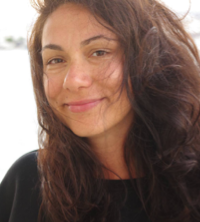
Raluca Bejan, PhD
Raluca Bejan, PhD
Assistant Professor
Social Work
Facebook: Raluca Bejan
Twitter: @Raluca_Bejan
DFA Member Raluca Bejan is a Member-at-Large with the DFA Executive. She started her position as Assistant Professor at Dalhousie in January 2020. Prior to joining Dalhousie, she was Assistant Professor of Critical Social Policy at St. Thomas University in Fredericton. In 2016 and 2018, Raluca was a Visiting Academic at the Centre on Migration, Policy and Society (COMPAS), University of Oxford, UK. She completed her PhD at University of Toronto in 2018.
In 2018 Raluca co-directed a documentary film on the Greek Refugees crisis, titled Trace. It was filmed on the islands of Lesvos, Chios, Samos, and in Athens, Greece. Trace won Best Feature Documentary at the Santorini Film Festival in 2019.
Why did you pursue an academic career in your field?
It just happened organically. I have always been passionate about reading and writing.
What do you like most about your career?
That I can engage with big questions about what matters most in society.
How did you choose the focus of your research?
I became a migration scholar because of my former experience of migration. I am originally from Romania, and I started migrating at a time when, with a Romanian passport, you could only enter Hungary. Between several family members and me, we have all been in all imaginable migration categories that exist-from undocumented to subjects of private sponsorship programs.
What do you like most about working with students?
I like to instill in students the passion and thinking skills needed to change the world.
What are you most proud of in your career?
My applied work, which generally has had an impact on informing public policy, such as the work on documenting the occupational conditions of agricultural and seafood migrant workers in Prince Edward Island and New Brunswick.
What has been your biggest challenge?
Making a life in North America, far from family and friends.
What is the best piece of advice you could give an undergrad or grad student?
Read. Read as much as you can during your studies because you will never have this much time in your life ever again to engage profoundly with academic texts.
Media coverage of Raluca’s work
- The Canadian Press (2023, March 1). ‘Unfree labour’: N.B. seafood foreign workers faced awful conditions, study says. Cross-posted: Global News. The Toronto Star. National Post. Yahoo Finance. St. Catherine Standard. Alaska Highway News. Guelph Today. The Record. The Winnipeg Free Press. The Chronicle Journal of the Northwest. Huddle Today.
https://www.thestar.com/news/canada/2023/03/01/new-brunswick-seafood-foreign-workers-faced-awful-conditions-during-covid-19-study.html - Ibrahim, H. (2023, March 1). Foreign workers at N.B. seafood plants face threats, cramped quarters and racism, study finds. CBC New Brunswick.
https://www.cbc.ca/news/canada/new-brunswick/tfws-foreign-worker-housing-working-safety-1.6761918 - Jones, L. (2023, March 1). Conditions for migrant workers in New Brunswick seafood industry abusive, dangerous: report. The Globe and Mail.
https://www.theglobeandmail.com/canada/article-migrant-workers-new-brunswick-seafood-conditions/ - CBC Maritime Noon with Bob Murphy (2023, March 1). A researcher at Dalhousie University tells us about her new report into working conditions in NB for temporary foreign workers.
https://www.cbc.ca/listen/live-radio/1-38/clip/15969688 - CBC Radio Maritime Connection (2022, Nov.13). How do you think we can protect the rights of temporary foreign workers... and help them become Canadians if that’s what they want. Halifax.
https://www.cbc.ca/listen/live-radio/1-99-maritime-connection/clip/15948377-how-think-protect-rights-temporary-foreign-workers...-help - Dal News. (2021, June 3). Temporary foreign workers in P.E.I. faced inadequate housing and overcrowding despite pandemic: Study.
https://www.dal.ca/news/2021/06/03/temporary-foreign-workers-in-p-e-i--faced-inadequate-housing-and.html - CBC News. (2021, June 1). Report details poor living conditions, “unscrupulous” practices for P.E.I. migrant workers.
https://www.cbc.ca/news/canada/prince-edward-island/pei-migrant-worker-report-unsafe-at-home-1.6047995 - Global News. (2020, Oct. 27). Dalhousie University to document impact of COVID-19 on temporary foreign workers.
https://globalnews.ca/news/7424564/coronavirus-dalhousie-university-temporary-foreign-workers/ - SSHRC News. (2020, June 5). New Dal prof’s award-winning doc depicts different side of refugee crisis.
https://www.sshrc-crsh.gc.ca/society-societe/stories-histoires/story-histoire-eng.aspx?story_id=294
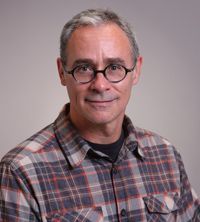
Marc Whelan, PhD
Marc Whelan, PhD
Senior Instructor
Chemistry
DFA Member Dr. Marc Whalen, Department of Chemistry, sits on the DFA Executive Committee as a Member-at-Large. Read below to learn more about Marc.
Why did you pursue an academic career in your field?
The summer after my second year undergrad I worked in the laboratory of Neil Burford, who at the time was a new Faculty member in the Department of Chemistry at Dalhousie. I was enthralled by the mysteries of the chemical behaviour of the elements, particularly highly reactive, air sensitive reactions. After that I was hooked, and pursued an Honours in Chemistry at Dalhousie, PhD at McMaster University and a post doc at UC Berkeley. After 10 years working as an industrial scientist / inventor for a large tech materials company in the US, I became disillusioned with science for profit and decided to pursue an academic career wherein science can be engaged in for its own sake.
What do you like most about your career?
I love the newness of each semester and interacting with young minds.
How did you choose the focus of your research?
During my time as an industrial scientist, I was exposed to the economics of chemistry. I am not referring to economics as an academic field, but to the constraints that the profit motive places on chemistry as it is practiced in the world. This has greatly defined the predicament we are in as a culture with respect to pollution, global warming, etc. My research currently focuses on mapping out earth and societal systems that are intimately connected to and influenced by large scale industrial processes, like production of petrochemicals, plastics, and refrigerants. The underlying motivation for me is to expose the “why” of our predicament, from a chemical perspective, and provide a context for possible solutions, given the constraints of the complex systems involved. Systems thinking is common in many fields, but only recently has it been applied to chemistry education.
What do you like most about working with students?
Students have an idealism to change the world and an abundance of energy for the task. I enjoy helping them find their direction, where to focus their efforts.
What are you most proud of in your career?
I am very proud of the work I have done to map out the industrial production and use of ammonia on a global scale, and identifying the earth and societal systems that are impacted. Dependence on fossil fuels for food production, nitrogen pollution, etc.
What has been your biggest challenge?
Finding an academic niche where I can do something that is both publishable in academic circles and inherently worth doing.
What is the best piece of advice you could give an undergrad or grad student?
Whatever you choose to do with your life, realize that it will take most of your energy and time. Try to find something you perceive to be inherently meaningful and worth your efforts (not just what you think will get you a job, because that can change). It helps if you enjoy it as well since you will be spending your days doing it. With all that being said, you can also change your mind and likely will do so several times as your path unfolds. Find ways to have fun along the way and enjoy the process.
Read about Marc’s research here:
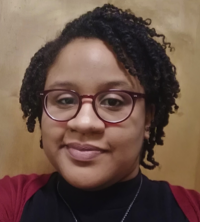
Asha Jeffers, PhD
Asha Jeffers, PhD
Assistant Professor
English
DFA Member Asha Jeffers is a Member-at-Large on the DFA Executive Committee, and is also a Director on the CAUT Defence Fund.
Why did you pursue an academic career in your field?
I’ve always loved reading and writing. I still have notebooks with (very badly spelled) stories I wrote as a child. When I started my undergrad, I thought I would be become a high school teacher but attending university made me realize that as an academic, I could combine my various interests while having a lot more autonomy over what I wrote and taught.
What do you like most about your career?
I like getting to talk to people – colleagues, students, folks at conferences – about ideas. It’s really gratifying to have a career based around the value of being interested in the world and the people in it, and getting to share that interest with others.
How did you choose the focus of your research?
My work is on literature about and often by the children of immigrants, the second generation. I grew up as the daughter of immigrants around a lot of other children of immigrants and I noticed that despite our significantly different cultural, religious, and social backgrounds, there were things about being second generation that we all related to and connected about. At the same time, I was reading novels set in places far away from where I lived, like Zadie Smith’s White Teeth set in London, England, and discovering that there too second-generation folks were experiencing and thinking about some of the same things me and my friends were. This combination of personal experience and reading literature that explored similar experiences made me want to keep thinking about and writing about these topics in ways that I hadn’t seen other scholars do.
What do you like most about working with students?
I think it is really fun to help students develop language for things that they have noticed and felt but have not known how to talk about or contextualize. There are times when I get to ask students questions or share pieces of writing that really unlock for them insights into their own lives made possible through processes of imagination and empathy.
What are you most proud of in your career?
More than any specific achievement, I’m proud that I follow my gut when it comes to career choices. I do my research and listen to what other people have to say, but ultimately I choose to do things in ways that I feel work best for me, even if they aren’t the standard.
What has been your biggest challenge?
My biggest challenge was learning how to teach online during the pandemic, especially as someone who had never even taken an online course. I’m really proud of how I managed it, but it was definitely tough.
What is the best piece of advice you could give an undergrad or grad student?
The advice I always give grad students or perspective grad students is that you need to know why you’re doing what you’re doing for yourself, regardless of what happens afterwards. You have to ask yourself, leaving aside any end result, do I really want to make this big commitment to spend the next however many years of my life dedicated to a specific project? Knowing the answer to that question can provide a sense of peace even if things don’t go as you might have hoped.
Relevant links
Asha’s academic publications can be found here:
https://journals.sagepub.com/doi/10.1177/0021989419900523
https://doi.org/10.20897/femenc/12349
Her poetry chapbook can be purchased here:
http://www.anstrutherpress.com/new-products/mundane-majestic-by-asha-jeffers
Read Asha’s short story:
https://ex-puritan.ca/the-scar-asha-jeffers
Hear Asha on a podcast talking about comic books:
https://goshgollywow.com/2021/07/17/excalibur-20-the-eye-of-the-beholder/
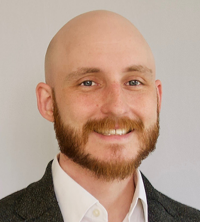
Andrew Brown, PhD
Andrew Brown, PhD
Assistant Professor
English
Why did you pursue an academic career in your field?
English and history were always strong subjects of mine, but I had almost no understanding of what professors did for a living or how academia worked until late in my undergraduate degree. When an advisor first showed me that this was a possible career path, I didn’t quite believe that doing what I already loved—reading, writing, and talking about books and ideas—could also be a job for me, but I was so excited by the possibility that I decided to apply to graduate school anyway.
What do you like most about your career?
The freedom to choose my own projects and set my own goals and terms for success is incredibly liberating. I especially enjoy the process of developing the kernel of a new argument in a conference paper: it’s a chance to try out ideas and receive feedback from smart and engaged colleagues from around the world.
What do you like most about working with students?
They bring a fresh perspective to texts (like the works of Shakespeare) that I may have read dozens of times, and by asking unexpected questions or offering new interpretations, they help keep those texts interesting for me as well. I also find it especially gratifying when students are able to tap into a special interest of their own through my courses. For example, in my recent class on the history of the book, many students returned to a favourite text from their childhood or their previous education and used our course’s focus on the production and publication of books to view it in a completely different light.
What has been your biggest challenge?
I started at Dal in the fall of 2020, which meant that I was moving to a new city, transitioning into my first full-time faculty position, and dealing with the massive changes caused by the pandemic within and beyond the classroom—all at the same time! It was both challenging and rewarding to design fully online, asynchronous classes that were as accessible as possible to all students under those conditions.
What is the best piece of advice you could give an undergrad or grad student?
Your best work will be deeply rooted in your own genuine interests, questions, and challenges. Ask yourself: what is the argument that only I can make? What is the essay or journal article I want to see in the world but which doesn’t exist yet, and how can I write it in a way that allows others to appreciate these ideas too?
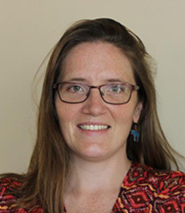
Amy Birchall, RVT
Amy Birchall, RVT
Instructor
Veterinary Technology Program
Based on Dalhousie's Agricultural campus, Amy Birchall is a long-standing member of the DFA Executive Committee. She serves as the Secretary and has been the chair of the DFA Communications Coordination Committee since 2018.
Why did you pursue an academic career in your field?
I really enjoy mentoring veterinary technicians and have done that for many years. When I was presented with the opportunity to work in academia, I jumped on the chance. Since joining academia, I absolutely love working with students and building their skill set and confidence.
What do you like most about your career?
I enjoy building relationships the most. The time I spend with students is very meaningful to me and I feel we build connections as colleagues that last for many years.
What do you like most about working with students?
Seeing them grow in their skills and confidence levels. What I enjoy the absolute most is going back to clinical practice and working with our graduates and having them teach me!
What are you most proud of in your career?
I am most proud of my ability to listen and make change. In spending time talking with students, I have learned so much about how to help them learn. Listening to them has brought about changes in my courses that have made me a better educator.
What has been your biggest challenge?
My confidence. I second guess myself often. This is something I continue to work on.
What is the best piece of advice you could give an undergrad or grad student?
In life and in careers, there will be challenges and successes. Embrace a growth mindset. Every bump in the road is an opportunity for growth.
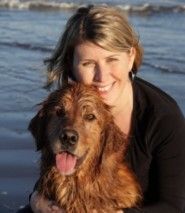
Karen Curry, Master of Nursing
Karen Curry, Master of Nursing
Assistant Professor
School of Nursing
DFA Member Karen Curry comes to Dalhousie after a long career in community nursing. Read below to learn more about Karen.
I am an experienced community health nurse leader with more than 25 years of practice, mainly in-home health care with the Victorian Order of Nurses (VON). For the past 10 years, I have worked in Professional Practice for the VON, supporting nurses and unregulated care providers’ practice. As Practice Educator Consultant, I advocated for practice change initiatives to develop community health nurse capacity. I knew I wanted to gain more education and contribute in a meaningful way to community health nursing. I completed a Master of Nursing in 2014 from Athabasca University, with a focus on teaching.
My career goal was to teach nursing at the university level. Through my volunteer roles and involvement with the Community Health Nurses of Canada (CHNC) for over 10 years, I have made connections and collaborated with community health nurses working in academia to promote advancements in community health nursing practice. I am currently the president-elect for CHNC and look forward to advocating for the role and voice of community health nurses in Canada.
I am a passionate and enthusiastic speaker who thrives on collaboration and participatory exchange. After years of work in professional practice in home care, working with students and building connections and supports for learning is very energizing to me. I bring a lens of the realities of health care in Nova Scotia and community health practice and experience.
I believe in learning through experience. Learning is a reciprocal event occurring through an exchange, open dialogue, and collaboration. In the classroom, I bring my experience and authentic approach to sharing knowledge and working with students. My areas of interest are community health nursing, caring science, people-centered care, palliative care, leadership development, health policy and health system change.
Working collaboratively to advance the principles of equity, diversity and inclusion in health care and curriculum from words to actions is very important to me. I strive to be open to continued learning and reflection on my history, personal bias, and ways I must change to create a safe, inclusive learning environment for all students. I teach Population Health to third semester nursing students and the focus is on providing a lens of health equity, social justice, and cultural safety as foundational skills for nursing practice. I am looking forward to becoming engaged in the work of the Faculty of Health Sciences and the School of Nursing, contributing to the growth of faculty for nursing education.
I am hopeful for the nursing profession and the healthcare system, that the new generation of nurses, and those coming up have the skills and motivation to create safe, effective, equitable health systems that support the health and wellness of Nova Scotians.
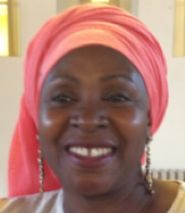
Afua Cooper, PhD
Afua Cooper, PhD
Professor
Sociology and Social Anthropology
DFA Member Dr. Afua Cooper is the former James Robinson Johnston Chair in Black Canadian Studies. She was also the Chair of the Scholarly Panel on Lord Dalhousie's Relationship to Race and Slavery and co-authored that panel's Report. Read below to learn more about Dr. Cooper.
Why did you pursue an academic career in your field?
History and English literature were my best subjects in school. So there was a natural love there from the get go. I was born and raised in Jamaica, a colonial/post-colonial/post-slavery society. History was everywhere, in the faces and bodies of the people, in the built and natural landscape, in the culture and politics. My parents and grandmother were always talking about history, their lives, their families, their genealogies. I learnt from them.
I was also influenced to pursue history by two major Caribbean historians—Walter Rodney and Kamau Brathwaite. Rodney wrote How Europe Underdeveloped Africa, and that book changed by intellectual trajectory. Brathwaite wrote Development of Creole Society in Jamaica, and that book caused me to see how Black communities in slavery and after, evolved. Brathwaite was also a poet and a playwright, so for me he was an excellent role model, because I was also a poet, and wanted to use poetry to make meaning of my world.
By the time I finished high school, I knew I wanted to pursue historical studies, slavery and Black history in particular. I also knew I wanted to do a PhD in those fields.
What do you like most about your career?
I love the research aspect of it. What a joy it is to discover something new in research. I love looking especially at primary documents, and imagine the inner life of some of the people who are mentioned in the documents, or who wrote the documents. I also love to introduce students to primary research. I see students come alive when they see, read, and touch the primary sources for the first time. History then becomes something that is real, material, and not abstract.
I also love sharing historical knowledge by giving public lectures, and media interviews (this include podcasts). Publications is another way of sharing. I use multiple platforms in sharing: histories, children’s books, poetry, novels, and blogposts.
How did you choose the focus of your research?
I am drawn to slavery studies. In my opinion, the enslavement of Black people in this hemisphere is still under-recognized. This phenomenon broke the world. It also fractured Black people’s families, lineages, genealogies, and robbed us of so much of our culture. We are still feeling the after-effects and after shock of it. I wanted to understand how this (the slave trade and enslavement) happened to Africans, how some of us survived, and what it took to survive. In many ways, my work is a homage to my ancestors, to my parents, to my children, and to the generations yet unborn.
My specific interests are gender, slavery, and the law. I am now researching children and slavery. I am also writing a few biographies of Canadian enslaved people. I am drawn to biographies, because that method allows me to, as best as one can, enter the interior life of the subjects.
I also have colonialism and post-colonialism as areas of expertise. Black people living in freedom, especially during the periods of abolition, emancipation, and the civil rights are further areas of research and teaching.
What do you like most about working with students?
I love to see the transformation that takes place in students from when they enter the classroom at the beginning of the semester to the end of it. I love to see the growth and the depth that take place in students. I love to see them fall in love with the topic, to engage the topic, and I love to see the development of critical thinking skills.
In students, I see the next generation of scholars, and I do my best to be a mentor to them. In my mind, in working, teaching, and mentoring students, I am passing on the baton.
What are you most proud of in your career?
Lots of things. The development of intellectual infrastructure is something I am engaged with. I taught the first Black women’s history course at the University of Toronto and helped develop the Caribbean Studies program at Toronto Metropolitan University (former Ryerson University). Here at Dal, I introduced the Black Studies minor, and am part of the leadership team developing the major and the BA in Black Studies. I also founded the Black Faculty and Staff Caucus.
On a national basis, I founded the Black Canadian Studies Association, which is a network of Black Studies practitioners, with the mandate to introduce and develop Black studies within the Canadian academy. Most recently, I was awarded an honorary doctorate from Simon Fraser University (which by the way I was teaching when I founded the BCSA). That made me super proud.
I would say that I am happy and proud that I wrote The Hanging of Angelique. CBC named it as one of the top 100 Canadian books. My publisher told me it is now used in 250 courses in North American colleges and universities! I am proud that I led the panel and research on Dalhousie University and its connection to race, slavery, and anti-Blackness. Conceptualizing the Report, and co-writing it is also an achievement for me.
Recently, I won a huge grant from the Department of Canadian Heritage to roll out A Black People’s History of Canada. This project is intended to conduct research on Black history, fill in the gaps, and write curricular material for elementary and high school teachers, students, and the public at large. We recently concluded a conference at Dalhousie which addressed Black history and STEM education. I am also the Canadian commissioner for UNESCO’s “Routes of Enslave Peoples Project.” I am happy that I am able to contribute in transforming the curriculum and pedagogy, and that I am able to do this through an anti-racist, anti-oppressive and EDI framework. I am glad that I am opening doors for others.
What has been your biggest challenge?
To find the time to do everything I want to do! But I know how to divide my time to work and to relax and have fun.
What is the best piece of advice you could give an undergrad or grad student?
To respect the work that you do. Take it seriously. Fall in love with it because that will count if and when you want to quit. Strive for excellence. Your best is what will be good enough. Find a community of like-minded folks who will love and support you. Develop the skills you need to develop. Take time out to relax and dream.
Anything else you would like us to know?
I am a poet with six books of poetry. My latest Black Matters won the Atlantic Poetry Prize. I also received the Portia White Award for Excellence in the Arts. I was Halifax’s poet laureate from 2018 to 2020. Poetry, whether reading or writing, centres and grounds me. Look out for my upcoming book of poetry called The Halifax Explosion. In poetry, my imagination takes flight. Fun facts: I love to swim and walk (especially in Point Pleasant Park). I love dancing. I am an Ottoman Empire history buff (this also means learning the history of Black enslavement in the Ottoman Empire). These days, I am an avid watcher of Turkish and Senegalese soap operas. I love to spend time and travel with my kids. I am perpetually studying French!
Relevant links to your research, special projects, etc.
- https://afuacooper.com/
- https://blackhalifax.com/
- https://www.dal.ca/news/today/2022/06/08/past_future__african_canadian_history__arts_and_culture_in_stem_education_symposium.html
- https://www.dal.ca/faculty/arts/sociology-social-anthropology/faculty-staff/our-faculty/afua-cooper.html
- https://www.dal.ca/faculty/arts/history/faculty-staff/our-faculty/afua-cooper.html
- https://www.dal.ca/news/2021/04/09/-a-black-people-s-history-of-canada--set-to-produce-a-seismic-sh.html
- https://www.youtube.com/watch?v=NKTKA8NoJCY
- https://www.cbc.ca/books/black-matters-1.5723534
- https://www.unesco.org/en/articles/transatlantic-slave-trade-legacies-past-building-future
- https://www.youtube.com/watch?v=NKTKA8NoJCY (International Women’s Day lecture at the University of Toronto, 2021).
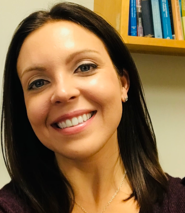
Stefanie Colombo, PhD
Stefanie Colombo, PhD
Associate Professor and Canada Research Chair, Aquaculture Nutrition
Department of Animal Science and Aquaculture
Dr. Stefanie Colombo is a Canada Research Chair (Tier II) in Aquaculture Nutrition and founder of the Aquaculture Nutrition Lab. In 2023, she was named to the Royal College of New Scholars, Arts and Scientists.
She received the Innovator of the Year Award 2022 (Aquaculture Association of Nova Scotia), Early Career Research Excellence Award 2021 (Faculty of Agriculture), President’s Research Excellence Award – Emerging Investigator 2019 (Dalhousie Legacy Award). You can learn more about Stefanie’s research here: https://www.aquaculturenutrition.com/
Why did you pursue an academic career in your field? I’ve always been passionately interested in the ocean and marine life since I was a kid – I first started snorkeling at age 6 and scuba diving at 12 and was a divemaster 10 years after that. As an undergrad student in marine biology, I began to learn about aquaculture and how it could help alleviate pressure on wild fish populations. I began working in the aquaculture industry and saw the focus on science and innovation which sparked my interest. After gaining some experience working at a halibut farm, I realized that my passion was in scientific research.
What do you like most about your career? That I feel like I’m making a positive difference in the world (through my research and teaching students) and that it is dynamic and interesting and I’m always learning. I love the creative things I get to do – in my courses, in research, designing experiments, presentations. It is so awesome that I get to do this job.
How did you choose the focus of your research? Sometimes I feel like it chose me because opportunities would arise, and I’d jump for it! I like doing something unique. In aquaculture, it seemed to me that there was so much to learn and so much research that needed to be done that it seemed like an area that could explode with scientific research.
What do you like most about working with students? Their passion and interest in science. That I’m able to help them reach their goals. I love watching their growth and I’m inspired by their determination and dedication.
What are you most proud of in your career? I’m proud of the work I’m doing at Dal. I’m proud of the undergraduate and graduate students that I’ve trained. I’m proud of the research program that I’ve developed. But I feel like there’s a lot more to come.
What has been your biggest challenge? I wouldn’t say there is something to be named “the biggest challenge” (yet), but taking on new roles and commitments, growing my lab, etc. there’s been challenges and growing pains along the way, but I’ve learned/am learning to be resilient and persistent.
What is the best piece of advice you could give an undergrad or grad student? Don’t be afraid of new challenges because when things get tough, it’s an opportunity to grow. Be open to opportunities and stay true to yourself and what you’re passionate about.
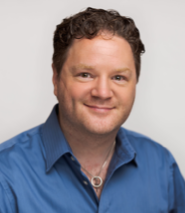
Keith Brunt, PhD
Keith Brunt, PhD
Associate Professor, Pharmacology, Dalhousie
Dalhousie Medicine New Brunswick (DMNB)
DFA Member Keith Brunt, PhD, is based in Saint John at the Dalhousie Medicine New Brunswick location. In addition to being an Associate Professor of Pharmacology at Dalhousie, Keith is also an Adjunct Professor of Business at the University of New Brunswick.
He is a winner of the BioInnovation Challenge, a BreakThru Innovation Awardee, and winner of the Medical Dragon’s Den. He has also received a Mentorship Award from the New Brunswick Health Research Foundation. Read more about his research at https://impart.team/
Why did you pursue an academic career in your field? I have always been interested in various fields and keen to do research that could uncover how the body works and apply that information to help patients or healthcare workers. Translational medicine was not something I knew much about when I was a student, but I have embraced that role and field, as it is very responsive to the needs around us. I get to experience the steady exploration of fundamental physiology and the creativity of applying knowledge to product and service development. This also comes with the excitement of working with students, clinicians, start-ups and leading commercial enterprises.
What do you like most about your career? The academic freedom to evolve as an interdisciplinary researcher. I get to continually add new approaches to my problem-solving skillset and help find solutions for the commercial, clinical, or fundamental biology fields in which I work. Being creative and building teams are my favourite. It is a great feeling when you have the right minds working on a problem together. I get to be an explorer of many things, like how cells interact to how healthcare systems can be improved. My field is highly collaborative, so I work with other scientists, engineers, clinical specialists, entrepreneurs, and companies. I love understanding what the needs are and how to find and execute targeted research questions that drive innovation.
How did you choose the focus of your research? The way I experience the world, my attention and my work activities can’t be overly routine as I thrive on finding new projects and new opportunities to learn or to teach in diverse ways. I knew science made the most sense to me because I could not possibly get bored. Finding my way into translational medicine was a natural fit because it was inclusive of quantitative and qualitative scientific approaches and integrated fundamental, applied, and clinical research. It also allows me to feel connected to the outcomes of the work that I do as I get to see direct benefits to patients, without doing patient care per se.
What do you like most about working with students? They make me question the things I think I know. Since they are learning and experiencing things for the first time their path won’t be like mine was, so I relearn as I teach. Students have a revitalizing effect on your research interests and bring new energy to problems or to implement change in the status quo. Students challenge dogma. I really enjoy the diversity of the people I get to work with and mentor, from high-school students to medical and graduate students and even visiting scientists from the private sector - it leads to a great exchange of ideas and experiences for everyone.
What are you most proud of in your career? Working together with my colleagues to establish a new medical research program from the ground up in New Brunswick has been great and it was really needed - there was a lot of uncertainty and concern from my own mentors and colleagues, but I think we have helped put DMNB on the map in many positive ways on the national and international stage.
What has been your biggest challenge? Distributed research and education from a remote campus brings unique challenges, particularly in the early days of national grant competitions, as we were an unknown entity. Grant funders don’t like uncertainty. At the time, most people associated medical research only with Dalhousie, Halifax. As a distributed research program, I need to juggle three institutional appointments along with my primary appointment at Dalhousie in order to get the right balance of trainees, staff, logistical expertise and assets to support our translational research program. We made it work and gained the confidence of companies and funding agencies.
What is the best piece of advice you could give an undergrad or grad student? Start early thinking about what you most want out of a career, especially in terms of experiences or lifestyle and don’t be afraid to declare your interests to your mentors. Then equally be unafraid to change that career path or thinking a few times as you progress through life. If you look around and can’t find the career you want, maybe you need to be the pioneer that starts it off. Also, take the time to enjoy the results of your science - you are the first person to see and interpret new information - relish in that.
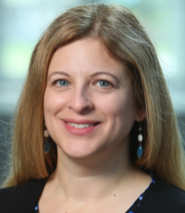
Christine Frigault, MEd, RCT, CCC
Christine Frigault, MEd, RCT, CCC
Career Counsellor, Bissett Student Success Centre Academic Advising and Career Services
Counsellor, Student Health and Wellness
DFA Member Christine Frigault has received the following awards from the Canadian Association of Career Educators and Employers: National Excellence in Innovation Award for Diversity (2019), Atlantic Regional Recognition Awards (2010, 2016, 2019), Sapphire Volunteer Recognition Award (2019), Emerald Volunteer Recognition Award (2016) and the National Educational Institution Recognition Award for MSVU (2015). In 2018, Christine also received the President's Award for Service to Mount Saint Vincent University.
Why did you pursue a career in your field? I have always enjoyed helping others and spent time volunteering with women who were in housing and job transition at the local YWCA while I was an undergraduate student and found it very fulfilling. After completing my Bachelor of Arts in Psychology, I decided the best path for me to a counselling career was the Master of Education in Counselling which I obtained in 2000. I have had the privilege of working as a post-secondary counsellor for 22 years, joining Dalhousie University as a Professional Counsellor in 2019. I provide career counselling at the Bissett Student Success Centre three days per week and spend one day per week providing same-day personal counselling at Dalhousie Student Health and Wellness.
What do you like most about your career? I love helping students identify their strengths, values, interests, and overcome challenges as they discover pathways to career fulfillment. I see students both individually and in groups and offer a Professional Career Development Group that aims to help graduating students build self-awareness, confidence and hope as they prepare to enter a changing labour market.
How did you choose the focus of your research? I enjoy research related to career development and core competency development through experiential learning, and have co-authored a related research article: Bowering, E., Frigault, C. Yue, A. (2020). Preparing Undergraduate Students for Tomorrow’s Workplace: Core Competency Development Through Experiential Learning Opportunities. Canadian Journal of Career Development, 19 (1), 56-68.
This research began while I was an employee at Mount Saint Vincent University, and I have continued to advance this research, working with the primary researcher who is a faculty member at MSVU. I am excited to provide the opportunity for members of the Professional Career Development Group to participate in a study examining whether attending the group impacts career awareness, hope and metacognition (Study title: The Impact of Experiential Learning Mediated Through a Career Development Support Group on Self-Awareness, Hope and Metacognitive Processing in University Students.)
What do you like most about working with students? Students are at such an exciting time in their lives and I love their energy and enthusiasm. I feel privileged to be able to help them shape their journey while in post-secondary and beyond.
What are you most proud of in your career? I feel proud when I see students grow during the time we work together and sometimes hear where they have successfully landed in their careers beyond post-secondary. I am also very proud of the many partnerships I have been able to foster throughout my career and am open to discussing opportunities to collaborate with other faculty and departments at any time.
What has been your biggest challenge? My biggest challenge has always been spreading the word about the work I do with students and making sure that people know support is available for them when needed. This is a big reason I responded to this request for a profile - to help raise awareness - so please feel free to refer students to me for career counselling via the Bissett Student Success Centre!
What is the best piece of advice you could give an undergrad or grad student? I would suggest students at all levels of study take the time to explore their interests through their courses as well as participate in a broad range of campus activities and experiential learning opportunities (which could include service learning, co-operative education, volunteering and other co-curricular activities). It is through reflection on these experiences that one becomes more self-aware and intentional in setting goals for next steps toward their career.
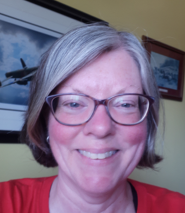
Shelley McKibbon, MLS
Shelley McKibbon, MLS
Information Services Librarian
Kellogg Health Sciences Library
DFA Member Shelley McKibbon is an Information Services Librarian at Dalhousie's Kellogg Health Sciences Library. Her tremendous organizational skills and witty sense of humour have made Shelley a valued member of the DFA Bargaining Team for the past four rounds.
Why did you pursue a career as a librarian? In the early-to-mid 90s, I worked for several years as an elementary school teacher, which was wonderful in many ways but never felt like an ideal fit for me. At a certain point I was trying to think of an alternate career and not having much luck… until one night I went to visit my parents, and my dad told me about a conversation he'd recently had with an acquaintance who was a librarian and who asked if I had ever considered pursuing an MLIS. I swear, my parents and I just looked at each other for several seconds, all wondering how on earth I hadn't thought of this long ago. It weirdly immediately felt right -- the definition of a lightbulb moment, or a choir of angels going "AAHHHHH." I was applying to library schools by the end of the week and have never regretted it for a moment. Originally I had intended to become a children's librarian, which seemed like a good fit given my previous career. However, I was hired as a reference intern at the Kellogg Health Sciences Library and have been in academic health libraries ever since. I wasn't expecting that type of library to be such a good fit for me!
What do you like most about your career? I do a lot of reference, including a great deal of one-on-one instruction when students and other researchers need help with their research topics. I really enjoy seeing what everyone is working on. I work mostly with rehabilitation professionals and I can see how their research will make a positive difference in someone's life. Being able to play a part in that is very satisfying-- I get to help committed people do interesting things that will obviously benefit others. I feel like I'm doing something worthwhile in my working life, which is a good feeling.
What do you like most about working with students/faculty? Healthcare programs, and in particular the groups I work with, seem to attract a pretty high proportion of what I call "good eggs." It's easy to be enthusiastic about their projects when they project such excitement themselves. I still enjoy teaching, so I enjoy mentoring students in particular about the process of doing literature searches. It's rewarding to collaborate with faculty on review projects, and it's very nice to be invited into classes to present on library resources, which usually leads to individual sessions with multiple students afterward.
What are you most proud of in your career? This happens the most often with students -- someone will make an appointment and, when they arrive, tell me they did so "because my classmate/colleague/coworker met with you and told me you were really helpful." It's rewarding to know the folks I work with appreciate the help they get from the library, and from me personally.
What has been your biggest challenge? My biggest challenge is probably the same as everyone else's, and we're in it. As for my second-biggest challenge-- A few years ago the Kellogg Library in the Tupper Building was made much smaller during a renovation, and much of our user space was moved down the street into the new Collaborative Health Education Building (which at the time was being built.) While the renovations were going on, we moved operations into temporary quarters down University Avenue at Chapter House and spent the Fall term of 2016 there. I wasn't directly involved with a lot of the process of making the moves happen, but maintaining service at the busiest time of the year was quite a trick. We were also concerned that the upheaval would disrupt services and cause our users to feel unwelcome and possibly discourage them from using reference services. That didn't come to pass, but at the time it was a pretty big worry for all of us.
What is the best piece of advice you could give an undergrad or grad student? The world has changed so much since I was a student that I hesitate to offer advice about anything not directly related to using the library. So for that I would say, give yourself time to find the resources you will need for your project. Dal has a pretty big collection, and our document delivery department can usually source the items we don't have, but it's safest to give yourself a few days' grace so you're not under pressure when you're looking. Also, remember that reference librarians are available to answer your questions and for most of us, that's our favourite part of the job because it's interesting. There is a huge amount of information out there, and a lot of ways to look for it.
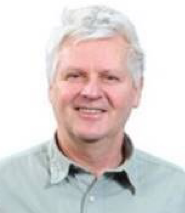
Alex Martynenko, PhD, P.Eng
Alex Martynenko, PhD, P.Eng
Professor, Department of Engineering
Faculty of Agriculture
DFA Member Alex Martynenko is a Professor in Dalhousie’s Department of Engineering, Faculty of Agriculture. He has received several awards for his work, including the Award for Outstanding Contribution in Reviewing ELSEVIER Journal of Food Engineering, an award for exceptional professional services as a peer reviewer for the Taylor & Francis Publishing Group, and an award for significant contribution to Drying Technology - An International Journal.
Why did you pursue an academic career in your field? I just followed the footsteps of my father, who was a well-recognized researcher and teacher in Agricultural Engineering in Ukraine.
What do you like most about your career? Sharing my experience with students.
How did you choose the focus of your research? With my unique experience as a researcher, inventor, and professional engineer, I am helping farmers, who are the most important people on the planet. They feed the world. So, my research is focused on the farm-scale novel, energy-efficient, and eco-friendly technologies to minimize crop loss and bring nutritious food to our table. https://www.dal.ca/faculty/agriculture/research/labs_groups_facilities/bioprocess-engineering-research-group.html
What do you like most about working with students? Their ability to think outside of the box.
What are you most proud of in your career? Connections with my former students and colleagues around the world.
What has been your biggest challenge? Research funding.
What is the best piece of advice you could give an undergrad or grad student? All challenges are hidden opportunities, never give up.
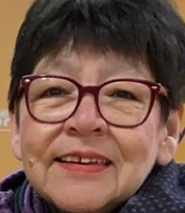
Patti Doyle-Bedwell, BA (Hons), JD, LL.M
Patti Doyle-Bedwell, BA (Hons), JD, LL.M
Associate Professor Indigenous Studies
Transition Year Program, Faculty of Arts and Social Sciences
Patti is a Mi’kmaw woman, lawyer and writer. An active member of the DFA, she has served on the DFA’s Executive Committee as a Member at Large and is currently a member of our Bargaining Team. Along with serving as the Chair of the Nova Scotia Advisory Council on the Status of Women for 10 years, Patti also works closely with: Mi'kmaq communities, Native Women Association of Canada, Women and the Law, and the United Nations on Women and Aboriginal rights. Patti is also an Adjunct Professor at Trent University.
She has received the "Rebel with a Cause' Award, the Diamond Jubilee Medal for community work, and her colleagues honoured her with an award for her work at Dalhousie. She was also recognized by CBC as one of the “10 Best Minds of Our Times”.
What do you like most about your career? I love teaching and supporting students. I also love working on creating pathways for Indigenous students and to help them make the transition to university.
How did you choose the focus of your research? As a Mi'kmaw woman, I have always been interested in educational equity and the role of Mi'kmaw women in traditional times. I am also interested in activism.
What do you like most about working with students? I love teaching students about Indigenous issues and supporting them as they chase their dreams.
What are you most proud of in your career? I am most proud of my work in creating change at Dalhousie, in partnership with my Indigenous and African Canadian Colleagues to ensure Indigenous and African Canadian issues receive recognition here. I am also proud of my teaching, the impact I have made on their learning journey and what the students have taught me.
What has been your biggest challenge? My biggest challenge has been dealing with racism and exclusion. Many people did not see the significance of the research I did on residential schools, and Indigenous issues, as well as equity.
What is the best piece of advice you could give an undergrad or grad student? Chase your dreams, do research you are passionate about, and find support in your family, community and from your professors and instructors. You are not alone.
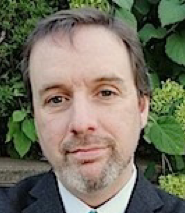
Frederick D. King, PhD
Frederick D. King, PhD
Assistant Professor of Business Communication
Rowe School of Business
Please take a moment to meet Dr. Frederick King, Assistant Professor of Business Communication in the Rowe School of Business. Born in Saint John, NB, Frederick is the son of working-class parents. “It's satisfying to know that despite having no access to the opportunities that middle-class students have, I managed to succeed anyway.”
Why did you pursue an academic career in your field? I had spent a number of years in careers where I was not satisfied because I earned an early degree in a field other people thought was best for me. When I returned to school to study English, I did it because I wanted to study something I was passionate about. It has since led me to where I am today, teaching communication and writing.
What do you like most about your career? The student engagement is what inspires me most days. It's motivating to talk to students who are discovering their options and exploring new opportunities that they never thought possible.
How did you choose the focus of your research? As an LTA employee with a Degree in the Arts and Humanities, but with work in Business Communication, I need to balance and keep both fields strong so that I can adapt to wherever my career takes me next. In English I chose Victorian Studies because I loved the literature of the aesthetes and decadents of the 1890s. In my research I then discovered textual studies and book history and the value of queer theory. As a gay man, I find it important to reassess and reread history and the past through marginalized points of view that did not always get to publish and circulate their stories. I'm currently writing a book directly related to these topics.
In terms of the possibility that I can pursue a career with the Commerce co-op program at the Rowe School of Business, I see my historical research as relevant to my students today. The corporation is a heteronormative institution with systemic issues regarding difference and change. Queer, racialized, gender non-conformist and women's voices are necessary for the corporation to be a sustainable institution. Beyond just hiring us, corporations need to change their mission and practices to reflect our diverse lives. I'm interested in understanding how my students, and university pedagogy can change corporate culture and challenge the conservative convention of on-boarding students into the unsustainable and anachronistic heteronormative hierarchies that define free-market capitalism.
What do you like most about working with students? Their desire to learn. It's fun to have a meeting and have a student realize how simple it is to do well with some planning and time management. Their enthusiasm is contagious.
What are you most proud of in your career? That I was able to earn a PhD. I come from a very poor background. My parents have junior high school educations. My family has always been on the economic periphery. It's satisfying to know that despite having no access to the opportunities that middle-class students have, I managed to succeed anyway. I credit my husband, James DuPlessis, for teaching me self-respect and confidence to be able to achieve my educational and career goals.
What has been your biggest challenge? Finances. Having come from poverty, school has required me to take on enormous student loans. Despite having a middle-class job now, it will be another 10 years of steady academic work before I will enjoy a middle-class lifestyle.
What is the best piece of advice you could give an undergrad or grad student? University doesn't secure you employment, you do. It takes an enormous amount of work, network development, problem-solving, and creative thinking to make a career out of something you are interested in as a career. You won't be able to do that if you hate what you're studying. Study what you love, but be realistic about it and recognize the work, and the compromises it is going to take to create opportunities for yourself.
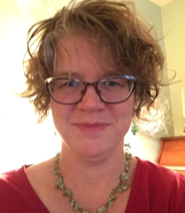
Kathy Cawsey, PhD
Kathy Cawsey, PhD
Professor, English
Faculty of Arts and Social Sciences
DFA Member Kathy Cawsey is an English Professor at Dalhousie. A recipient of the 2021 Faculty of Arts and Social Sciences Excellence in Teaching Award, Kathy is a Past President of the Canadian Society of Medievalists. She loves everything Arthurian – reading and writing books and articles on the topic and "Eavesdropping on Arthurian" podcasts.
Why did you pursue an academic career in your field? I had put off medieval literature until fourth year, because everyone said it was hard, but it was a required course for my degree. When I finally took it, I realized one day that I knew the ending of the story we were reading, with no memory of having encountered it before. I must have read a version as a little kid. I thought, "I could do this forever."
What do you like most about your career? I get to read, talk and write about books! For a reader, there's no greater pleasure. The combination of teaching and writing/research is so energizing and inspiring. I get my best research ideas in the classroom, and I teach my best classes on texts I've used in my research. If you took away one half - if I just researched, or just taught - both sides would suffer.
How did you choose the focus of your research? I chose medieval literature because I was sitting in an undergraduate class one day and thought, "I could do this forever" (as I mentioned above). Within medieval literature, though, I choose whatever most intrigues me and excites me. Right now, I'm exploring the overlaps between medieval attitudes to romance and sexuality, and modern ones. There are vast differences, of course, but also shocking similarities. Attitudes to rape, incel discourse on women, toxic masculinity - we have made frighteningly little progress since the Middle Ages. At the same time, I love looking at the complexities and subtleties of these attitudes, because not everyone thought the same thing. In some cases, medieval individuals held more liberal and open values than people today. We can't assume that medieval people all agreed with each other, or with the authorities.
What do you like most about working with students? I get so much energy from teaching, and I learn so much from my students. I know that's a cliché, but if you look at the footnotes of my articles you'll see it's true - I try to credit individuals and classes for the sparks of ideas that came up during discussion, and which I then go and explore through research.
What are you most proud of in your career? The FASS teaching award I won last year. If I do nothing else (though of course I will!), I will have satisfied the height of my ambition.
What has been your biggest challenge? Standing up to the culture of over-work in academia and society as a whole, and not feeling guilty. I shouldn't feel guilty about not working nights or weekends, and taking some time just for me, or for my family. I still do feel guilty, of course, but I'm doing my best to fight it!
What is the best piece of advice you could give an undergrad or grad student? Don't be judgmental. People in 20 years, or 100 years, or 1000, will look at what you believe, and think, "How could they believe/do/think that?" One of the reasons I think medieval literature and history (or any culture or history sufficiently different from ours) is so important is it lets you get in the mindset of totally different cultures with totally different assumptions. Don't assume we have it right.
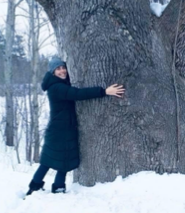
Laurel Schut
Laurel Schut
Instructor
College of Sustainability
DFA Member Laurel Schut is an Instructor with Dalhousie’s College of Sustainability. Her commitment to sustainability goes far beyond academia. Laurel is the Co-Founder and Co-Director of FOUND Forgotten Food, collaborating with local farmers to harvest leftover produce and redistribute it to multiple non-profits across the province. She is also on the Board of Directors for Divert NS, a not-for-profit corporation championing recycling in our province. Laurel is an Experienced Registered Yoga Teacher, Certified Fitness Instructor, and Continuing Education Provider with Yoga Alliance.
What do you enjoy most about your career in academia? I love that I can work on issues that are important to me, and that I can end each day feeling like I’ve made a difference. This is a privilege that I am grateful for on a daily basis.
What do you like most about working with students? I love the energy that students in the Environment, Sustainability & Society undergraduate program bring! They are so passionate about the sustainability issues we are facing. It is inspiring to see the many ways our current students and alumni use their skills to be the change they wish to see in the world. I also spent a couple of summers teaching English as Another Language students here at Dal, and I still keep in touch with a few of them as an email pen pal.
When you think about your career in academia, what makes you most proud? Any time a student shares with me that our time together has made an impact on their personal learning journey.
What is the best piece of advice you could give an undergrad or grad student? Don’t feel boxed in upon graduation to future employment in just your discipline. The skills you learn in your disciplinary studies can be applied to future careers in other disciplines — and this cross-disciplinary fertilization is actually really helpful and valuable for problem-solving and creativity!
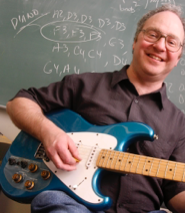
Jason Brown, PhD
Jason Brown, PhD
Professor, Mathematics and Statistics
Faculty of Science
Jason Brown, Professor of Mathematics and Statistics, has been involved with the DFA for many years. A member of the DFA’s communications committee for several years, Jason is also a past member of the Executive Committee. He is an excellent choice as the volunteer for our first Member Profile. He understands the value of having members of the public get to know university teachers for who they are beyond the classroom. Introducing Dr. Jason Brown…
Why did you pursue an academic career in mathematics? I was interested in mathematics since I was quite young. I remember my class being given an independent mathematics project of our own choosing in grade 7, and taking one of my older brothers' grade 13 math textbook and teaching myself matrices. It just seemed to make sense. At university I decided to go into mathematics as it was the one science I didn't have to do labs in! In my second year, one professor hired me to do research on networks, and I was hooked!
What do you like most about your career? There are many things I love about my career as a mathematician - the freedom to investigate research problems that interest me the most, the daily opportunity to learn, the immediacy of teaching in front of a class. But what I enjoy most is the mentoring of students - undergraduate and graduate - as I teach them to appreciate and love interdisciplinary research as much as I do.
How did you choose the focus of your research? During the summer of my second year as an undergraduate at the University of Calgary, I had an opportunity one summer to carry out research in graph theory. Silly me, I thought "graphs" were the study of plots from calculus, but I soon found out that graph theory was the study of networks, and I was enthralled. After reading through a textbook on the topic, I began working on a problem in graph colouring, and I was much more productive that summer than I could have imagined. During my Master’s degree, I took a computer science course on "network reliability" and found my background in mathematics opened up all sorts of opportunities for research. Both of these experiences led to published papers, and seeing my name and work in print was icing on the research cake.
What do you like most about working with students? Seeing them grow and mature as they become more autonomous in their learning, and as they find out that they can indeed discover new mathematics.
What are you most proud of in your career? The interdisciplinary nature of my research. From early on, I loved the surprising applications of one field of mathematics to another, and I have uncovered and explored such connections between algebra, analysis, probability theory and networks. I also have combined my love of mathematics and music to solve musical mysteries surrounding the songs of The Beatles, from the opening chord of "A Hard Day's Night" and the mathematical beauty of the bridge to "I Want to Hold Your Hand", to composer authentication and the conundrum of who - John or Paul - wrote "In My Life".
What has been your biggest challenge? To be constantly learning new areas of mathematics, where command of a topic may be months or years off in the distance. Patience is a virtue, and I have had to keep my eye on the prize. What helps is how much I enjoy the long ride.
What is the best piece of advice you could give an undergrad or grad student? Make yourself a life-long learner. You don't HAVE to learn - you GET to learn! And know that what makes you special is not just your knowledge and expertise in one narrow area, but the unique combination of skills and life experiences that you bring to the table. Learning and exploration is a gift - don't forget to be grateful!
Comments from Past Students
“I am especially grateful to Dr. Jason Brown, my PhD supervisor, who has been a lifelong mentor to me. During my years learning from Jason, I saw him expand his research to new fields … publish his work through books that reached national audiences, and mentor hundreds of students so that they too would have an impact in this world. Fifteen years after graduating from Dalhousie, I am still following in Jason's footsteps…”
Richard Hoshino, Associate Professor, Khoury College of Computer Sciences, Northeastern University, Vancouver.
“During the six years I spent at Dalhousie, Jason was always readily available to talk about research … In the crunch times of thesis writing and paper deadlines, he was always available late into the evening and on weekends to help me with any issues that arose. He would spend extra time scouring for TA and lecturer jobs for me to ensure that I could support myself while studying. He also always helped me secure the necessary funding to attend any conferences that I was interested in. … it might be easy to think that I was given special treatment, but Jason was supervising other students during this time … and putting in as much extra time and effort with each of them. I am extremely proud of my degrees from Dalhousie University … However, the institution itself did not give value to these degrees, it was the many exceptional professors who challenged and supported me along the way, like Jason Brown.”
Ben Cameron, Roncesvalles Postdoctoral Fellow, University of Guelph
“When I began my Master’s degree, I was pleasantly surprised to find out that Dr. Brown was willing to be so actively involved as my mentor. Between our regular meetings and his constant detailed feedback, it was clear that Dr. Brown was dedicating time and effort in order to help me through the process of writing a thesis. This level of one-on-one interaction was especially surprising considering that Dr. Brown was supervising multiple students and teaching multiple classes, all on top of his own research and external collaborative work. The amount of work that Dr. Brown did and continues to do as a Dalhousie professor is both amazing and inspiring, and this should never be understated.”
Jordan Barrett, PhD student, McGill University
“Dr. Jason Brown was my supervisor, who helped me and inspired me on my honours thesis. The first time I met Dr. Jason Brown was in his mathematical modelling class, and it was the second year at Dal. I was surprised by this professor; he had full energy and cared about students' study, and the most important thing was that he loved music and did a lot of research about mathematics and music. I was enthusiastic about music since I liked playing the piano. Therefore, when I started working on the undergraduate honour thesis about math and music, I was glad that Dr. Brown could be my supervisor … I was astonished about the time and energy he put as a professor at Dal. Without his help, I could not finish my honours thesis, and with the inspiration and energy he gave, I would never forget it.”
Tingyu Zhang, Master of Data Science Student, University of British Columbia
“As an undergrad studying mathematics … I was able to spend a summer working as a real mathematician - investigating modern areas of graph theory, developing research skills, and learning new computational tools. Dr. Brown was an excellent advisor and mentor throughout the whole process, and I'm proud that our work culminated in a published paper. It was a valuable experience, and a big boost in my budding STEM career.”
Julia Tufts, Software Engineer, Google NYC
Media Links
Saltwire, 2021. A conversation with Beatles expert and mathematician Jason Brown: on the enigmatic first chord, John Vs. Paul and more
Ideacity 2014. Jason speaking to a general audience of approx. 1,000 on the Connections Between Math and Music.
In 2012, the Wall Street Journal recorded Jason and his band playing "A Million Whys", a song Jason wrote in the style of the early Beatles using mathematical principles he gleaned from their songs.
Promotional video by the National Academy of Sciences on a math and music talk Jason gave in their Distinctive Voices series in Irvine, California:
A promotional video done when Jason was nominated for a Discovery Centre's Science Champion award.